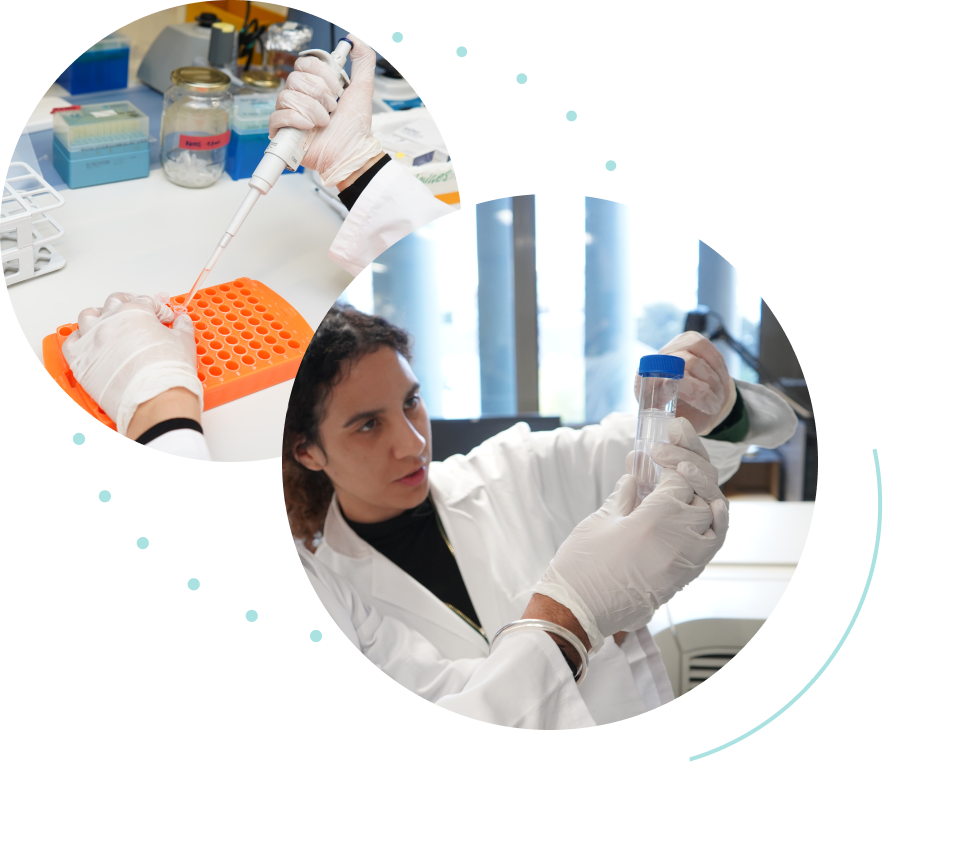Doctoral training programme
Will raise 10 researchers
This doctoral training network will raise 10 researchers with unique expertise in the role of RNA in retinopathies at multiple levels and with skills in diverse disciplines, including molecular and cell biology, neuroscience, microscopy, computational biophysics, bioinformatics, drug development and health economics.

Building on its unique and synergistic scientific profile, our training program has the quality to impact the understanding of retinopathies and advance development of clinical improvements in the field.
Our vision is that such training must combine and integrate understanding retinopathies at all levels: from the basic biology and pathophysiology involved, to the development of disease markers and innovative treatments, to considering the needs of stakeholders and to the overall health economics involved.
The training will prepare the next generation of researchers by:
Involving the DCs in collaborations within and between disciplines, having them share knowledge, data and skills thus stimulating synergistic research. DCs will learn skills for working in a team and diverse environments.
Exposing academic DCs to the non-academic sector and introduce them to diverse career opportunities and perspectives.
Helping DCs developing transferable skills that will prepare them for future challenges in academic and non-academic environments.
Promoting interaction between researchers and patients.
Retorna Doctoral training programme includes
Local training activities
Network wide training activities
Secondments
Dissemination of information
Through the mentioned planned activities, RETORNA aims to stimulate and facilitate interactions, communication and exchange of ideas among all members involved. The foreseen activities will also stimulate research and provide necessary training to DCs. Moreover will help the DCs create a common identity as a group, that will be beneficial to their careers, both during and after the RETORNA programme.
Summer schools
The aim of these summer schools is to provide the doctoral candidates several skills that they can use in their professional life afterwards and help them connect with professionals in various areas, increasing their future career opportunities.
Secondments
We aim to promote multi-disciplinary and intersectoral training to both stimulate synergistic advancements in research and to expose DCs to skills and environments they wouldn’t be normally exposed.